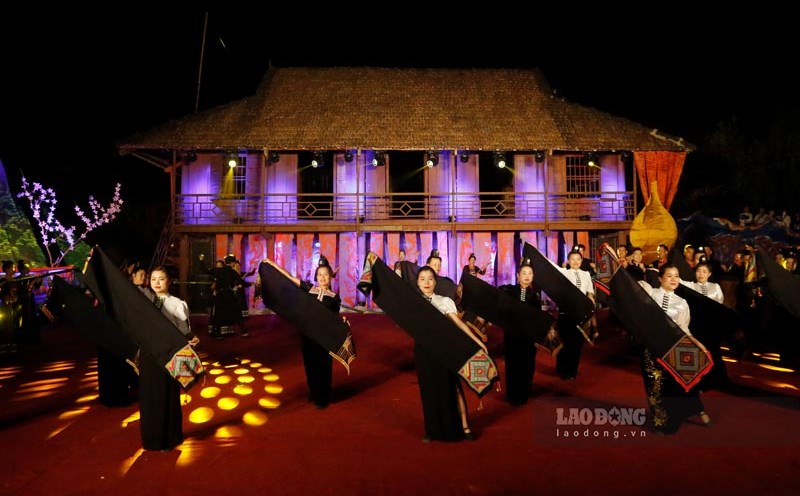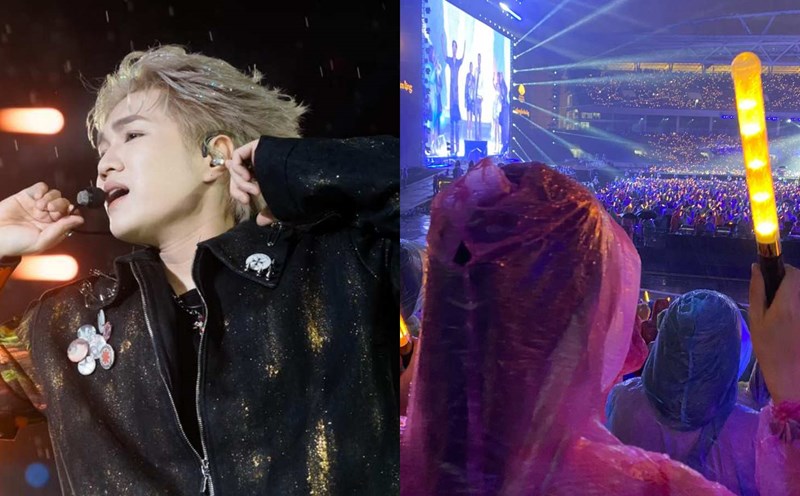In March, Vietnamese people gather to the sacred place not to reopen the flow of water, but just to slowly unleash the Thuong Son festival, watching the faces of our compatriots as close as the blood and blood shining with pride in the Tien - Dragon family.
That is the time when the Vietnamese people are practicing a unique form of folk worship, the worship of Hung Vuong, which was formed and developed from the culture of ancestor worship, and has been recognized by UNESCO as a representative intangible cultural heritage of humanity.
Each nation has its own history and culture that shows its vitality, historical development and cultural identity. In the minds of Vietnamese people, the Father Lac Long Quan, the country of Au Co and the eldest son, Hung Vuong, are considered the ancestors of the whole nation, opening the sacred Hung Vuong era.
Thousands of years of history of building and defending the country, deep in the minds of the Vietnamese people, the worship of Hung Vuong worship is both sacred to the people and symbolizing the strengthening of the great unity of the entire nation, a reminder of national pride and pride, which is a spiritual convergence point of Vietnamese people from generations.
Therefore, every time Vietnamese people set foot from the top of Nghia Linh mountain to cross the Ha temple, Trung temple, and Thuong temple on Nghia Linh mountain, it is a sacred step that belongs not to their family or clan but to their nation.
Then, March 10 of the lunar calendar was set as the day the whole country and nation gathered at Nghia Linh mountain to attend the Hung Vuong's death anniversary. Everyone wants to be present at this mountain that day to happily recall old things, old memories and personally light an incense burner to send their old memories back to their birth.
Vietnamese people practice the worship of Hung Vuong purely as worshiping their ancestors, only at the highest level of proxy. Even for those who are far away and have not had the opportunity to set foot on the sacred mountain, this is still considered a familiar spiritual land like "our home".
Thanks to that, the soul of the Vietnamese people is always closely linked to the origin, morality, ethics, and the tradition of "remembering the source of drinking water" of the entire nation.
National spirit
Belief in worshiping Hung Vuong is a typical and unique cultural identity of the Vietnamese people. Believing that worshiping Hung Vuong in the historical process has always been an endogenous element of national culture, contributing to fostering pride and creating a spirit of solidarity and patriotism.
President Ho Chi Minh signed Decree No. 22/SL - CTN dated February 18, 1946 giving civil servants a yearly March 10 holiday to participate in organizing Hung Vuong's Commemoration activities - towards the origin of the nation.
On September 19, 1954, President Ho Chi Minh, before taking over the capital of Hanoi, stopped at Hung Temple to talk to the officials and soldiers of the great army. He left the immortal instructions: "The Hung Kings had the merit of building the country, our grandchildren had to hold together." The saying contains profound philosophy of historical responsibility, inheritance and promoting the national tradition.
From Nghia Linh mountain to worship Hung kings, now the whole country has more than 1,410 relics worshiping Hung Vuong and related to the Hung Vuong era. Around the country, no Vietnamese person can light incense to commemorate the Hung kings, and share sympathy with the people burning incense in Nghia Linh mountain.
Belief in worshiping Hung Vuong and the Hung Vuong Commemoration Day have truly been turned by the Vietnamese people into a festival for the people, the nation, and the country. That cam cam incense smoke has flown beyond the territory of Vietnam, and then fragrantly fragranted in many places around the world, where Vietnamese people live.











